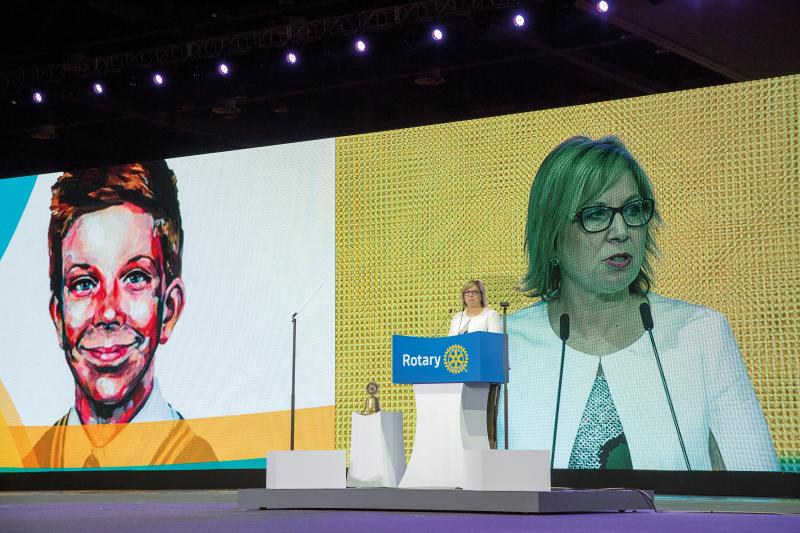The statistics are sobering: Intimate partner violence is the most common type of violence against women, affecting 30 percent of women worldwide, according to a 2013 World Health Organization report. As many as 38 percent of murders of women are committed by an intimate partner.
In New Zealand, a dozen women are killed by their partners or ex-partners each year. And in Australia, a woman is killed, on average, about every week.
Recognizing the desperate need for domestic-violence services in their communities, Rotary clubs throughout Australia and New Zealand are fundraising and partnering with charities to raise awareness and work on prevention and victim support.
As one club president said: When ending polio seemed insurmountable, Rotary stepped in. Why can’t Rotary help end domestic violence?
The Rotary Club of Maryborough, Victoria, Australia, is changing attitudes about domestic violence and generating positive community response with its multifaceted approach. What began as a social media campaign has grown to include community educational programs, publicity events that have reached millions, and the opportunity to present its SAFE program to the Royal Commission Into Family Violence (Victoria).
The Support, Advice, Facilitation, and Early Intervention model is a collaborative approach that gives everyone in the community a role to play in addressing family violence. Garry Higgins, the club’s project manager for the campaign #SayNO2familyviolence, believes it’s the type of program that has global application.
“As an independent, apolitical organization, Rotary can do and say things others can’t,” says Higgins, who presented the SAFE program to the Royal Commission.
Getting people to talk about domestic violence — once a taboo subject in the small town — was one of the club’s biggest challenges. To start that conversation, the club launched a communication campaign, Speak Up! #SayNO2familyviolence, which included social media posts and promotional brochures and posters.
For help spreading the message, the club targeted the key cultural and behavioral influencers in the community: local sporting clubs. The harness racing club supported the campaign, and the football club recently held its third #SayNO2familyviolence championship competition. I’ve learned a new way to deal with my ex-partner. My children will benefit from this — it’s all good now.
Melbourne University evaluated the program and reported positive results for the men who took part in four trials over the past two years.
“I’ve learned a new way to deal with my ex-partner,” said one program participant. “My children will benefit from this — it’s all good now.”
The Rotary Club of Brighton, Victoria, Australia, launched Violence Free Families in 1995, after a local child’s violent death. The club has raised more than $750,000 for the program, endorsed by Rotary District 9800 and supported by all 70 district clubs and Women in Rotary.


Leave A Comment
You must be logged in to post a comment.